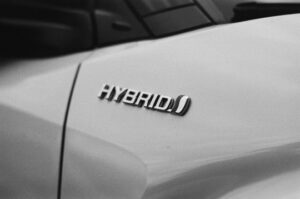Hybrid cars have exploded in demand and popularity in recent years due to their ability to reduce fuel consumption and harmful emissions. One of the primary reasons these vehicles are so efficient revolves around their hybrid engine. Hybrid car engines are available in various types, with each offering its unique characteristics and benefits. This article will explore the different types of hybrid engines and look at how they work.
 Parallel Hybrid Engines
Parallel Hybrid Engines
Parallel hybrid engines are the most prevalent type found in hybrid vehicles today. In a parallel hybrid system, both the electric motor and the gasoline engine are connected to the transmission and can directly power the wheels, either separately or together. This synchronicity allows for a seamless interchange between the gasoline engine and the electric motor.
Parallel hybrid engines are known for their versatility and are used in a wide range of hybrid vehicles.
Series Hybrid Engines
The concept of a series hybrid engine involves the gasoline engine solely generating electricity. Once initiated, this electricity powers an electric motor, which drives the vehicle. The engine torque exclusively powers the generator and is independent of the wheels, which are connected to electric motors, making this a highly efficient engine type.
Series hybrids are particularly useful in situations where steady and consistent speed is required, such as in railroad locomotives.
Series-Parallel Hybrid Engines
Combining the most favorable attributes of both series and parallel hybrid engines, a series-parallel hybrid engine allows the vehicle the flexibility to operate in a purely electric mode, gasoline mode, or a combination of both. This maneuverability encourages optimal performance and efficiency, explaining why the series-parallel hybrid engines have become such a popular choice among car buyers and automakers alike.
 Plug-In Hybrid Engines
Plug-In Hybrid Engines
Differing from the previously discussed engines that predominantly utilize the combustion engine aided by an electric motor to minimize combustion, a plug-in hybrid is closer to a fully electric vehicle. Plug-in hybrids can be charged with an external power source, which allows them the capability to travel longer distances when in pure electric mode, reducing the reliance on gasoline.
These engine types are ideal for commuters who want access to charging stations and a decreased carbon footprint.
Mild Hybrid Engines
A mild hybrid engine adds a low-capacity battery to the conventional starting motor and alternator, aiding the gasoline engine. This setup provides additional power during periods of acceleration, allowing the gasoline engine to operate more efficiently.
Mild hybrid engines are typically a cost-effective option and are generally included in vehicles where full hybrid systems may prove too costly.
Hydrogen Fuel Cell Engines
Although they may not be as common as other hybrid engines, hydrogen fuel cell engines have gained notoriety due to their zero-emission nature. Fuel cell cars run on compressed hydrogen gas fed into an onboard fuel cell stack that, instead of burning it, transforms the fuel’s chemical energy into electrical energy. This newly transferred electricity is then used to power the vehicle’s eclectic motors.
The tailpipe emissions from fuel cell engines emissions are zero, and the only byproduct of this process is water vapor, rendering hydrogen fuel cell engines one of the cleanest forms of propulsion available.
 Do Hybrid Engines Require More Or Less Maintenance Than Gas?
Do Hybrid Engines Require More Or Less Maintenance Than Gas?
Hybrid engines are generally less maintenance-intensive in comparison to traditional gas engines and, due to their design, will often require less maintenance over time. One primary explanation for this is that hybrid engines generally have regenerative braking systems, which may help reduce wear and tear on the brake pads and discs compared to conventional vehicles.
Additionally, since hybrid engines can alternate between the gasoline engine and the electric motor, they may have less need to run the gasoline engine as often, leading to less frequent oil changes and the potential for longer intervals between tune-ups.
Another factor that may contribute to hybrid engines’ lower maintenance requirements is their straightforward design. Hybrid engines often have fewer moving parts, resulting in fewer components that can eventually wear out or break down. Over the lifetime of the vehicle, this less complicated design can result in fewer trips to the mechanic and lower maintenance costs.
However, we should note hybrid vehicles do come with their own set of unique components, including their batteries and electric motors, which may necessitate specialized maintenance. Overall, while hybrid engines may possess different maintenance requirements from gas engines, they generally will not require more maintenance.
Repair Your Hybrid At T3 Atlanta
There are several types of hybrid engines, each offering its specific advantages and applications. Whether it’s the efficiency of series hybrid engines, the versatility associated with parallel hybrid engines, or the zero emissions of hydrogen fuel cell engines, hybrid vehicles can offer a wide array of options for environmentally conscious consumers.
Regardless of which type you choose, it’s important to keep your ride in top condition. Preventive maintenance helps reduce the chance your car experiences an unexpected breakdown. If you’re in the Atlanta area and looking to repair your Nissan, Infiniti, Toyota, or Lexus hybrid, give T3 Atlanta a call to make an appointment today!










Leave a Reply
You must be logged in to post a comment.